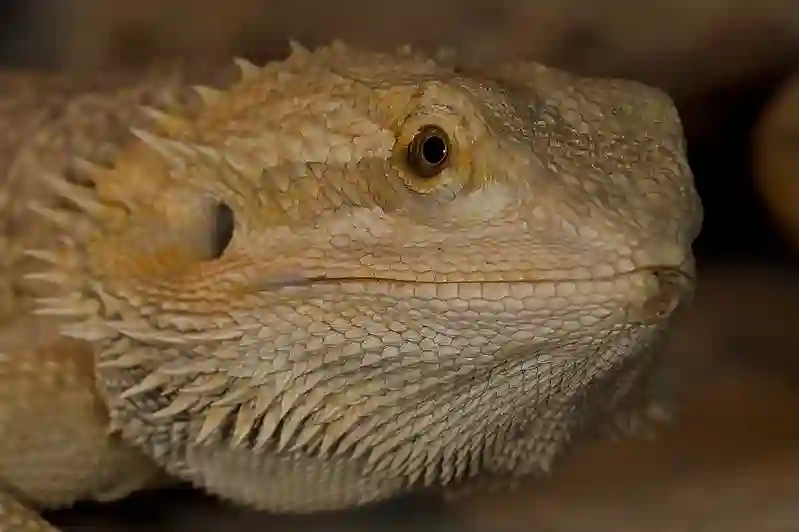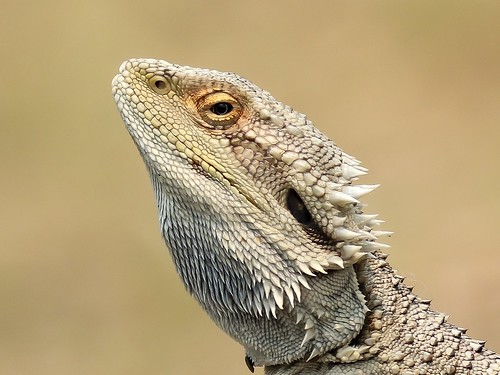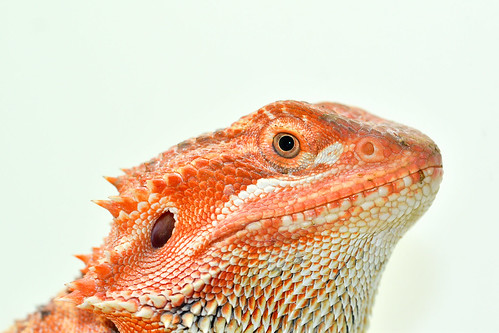These specialized glands are found in both male and female bearded dragons, but they are more prominent in males.
What are Femoral Pores?
Femoral pores are tiny, rounded openings located on the underside of a bearded dragon’s thighs. They secrete a waxy substance that serves various purposes, such as marking territory and attracting mates. In males, these pores are more prominent and secrete a more copious amount of wax, while females typically have smaller and less active pores.
The Function of Femoral Pores
The primary functions of femoral pores in bearded dragons include:
- Territorial Marking: The waxy secretion from femoral pores leaves a scent trail that helps bearded dragons establish and maintain their territory. This scent also warns other males to stay away and serves as a signal to females that a suitable mate is nearby.
- Mating Attraction: The waxy substance secreted by males contains pheromones that attract female bearded dragons during the breeding season. These pheromones play a crucial role in the reproductive behavior of these reptiles.
Recognizing Issues with Femoral Pores
Proper care of your bearded dragon’s femoral pores is essential to avoid complications such as impaction and infection. Some common signs of femoral pore issues include:
- Swollen or enlarged pores
- Discolored or darkened pores
- Excessive or hardened wax buildup
- Limping or difficulty walking
- Irritation, redness, or inflammation around the pores
How to Care for Bearded Dragon Femoral Pores
To ensure the health and well-being of your bearded dragon, follow these guidelines for proper femoral pore care:
1. Maintain Proper Hygiene and Enclosure Cleanliness
Regular cleaning of your bearded dragon’s enclosure is essential to prevent bacterial buildup and ensure a healthy environment. Remove waste daily, and perform a thorough cleaning of the enclosure, including disinfecting surfaces and replacing substrate, at least once a month.
2. Provide Appropriate Temperature and Humidity
Bearded dragons require a basking area with temperatures between 95-110°F (35-43°C) and a cooler area with temperatures around 75-85°F (24-29°C). Proper temperature gradients allow your bearded dragon to thermoregulate effectively, which is crucial for healthy femoral pore function. Additionally, maintain a humidity level between 30-40% to prevent dehydration and support proper shedding.
3. Ensure a Healthy Diet
A balanced diet is crucial for the overall health of your bearded dragon, including their femoral pores. Feed a variety of insects, such as crickets, dubia roaches, and mealworms, along with a mix of leafy greens and vegetables. Make sure to dust insects with calcium and vitamin D3 supplements to support bone health and prevent metabolic bone disease.
4. Regularly Inspect and Clean Femoral Pores
Inspect your bearded dragon’s femoral pores regularly for any signs of impaction or infection. To clean the pores, soak your bearded dragon in warm water for 15-20 minutes and gently use a soft toothbrush to remove any built-up debris.
5. Consult a Reptile Veterinarian for Persistent Issues
If you notice any persistent issues with your bearded dragon’s femoral pores, such as swelling, inflammation, or excessive buildup, consult a reptile veterinarian. They can provide professional advice and recommend appropriate treatments to ensure the health of your pet.
Preventing Femoral Pore Problems
Taking preventive measures can help you avoid potential issues with your bearded dragon’s femoral pores. Here are some tips to keep in mind:
- Promote Regular Shedding: Ensure proper humidity levels and provide rough surfaces, like rocks and branches, for your bearded dragon to rub against and facilitate shedding. This can help prevent debris buildup in the femoral pores.
- Avoid Overfeeding: Overfeeding can lead to obesity, which may contribute to femoral pore impaction. Monitor your bearded dragon’s weight and adjust their diet accordingly.
- Monitor Mating Behavior: During the breeding season, closely monitor your bearded dragon’s behavior, especially if you have multiple dragons in the same enclosure. Aggressive mating behavior can lead to injuries and femoral pore complications.
Conclusion
Caring for your bearded dragon’s femoral pores is an essential aspect of maintaining their overall health. By providing a clean environment, appropriate temperature and humidity levels, a balanced diet, and regular inspections, you can prevent potential issues and ensure the well-being of your pet. Should you encounter any persistent problems, consult a reptile veterinarian for professional advice and treatment.


